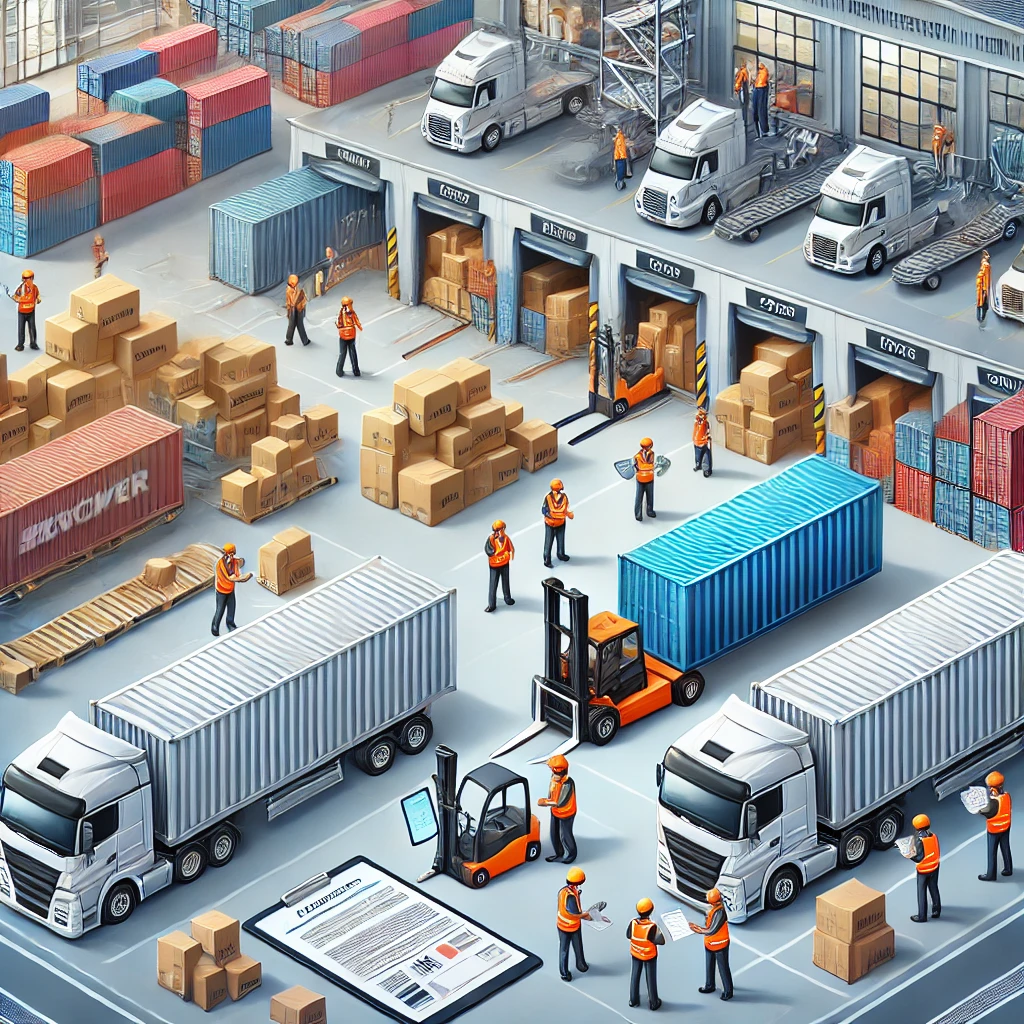A Beginner's Guide to What is a Freight Forwarding Company

What is a Freight Forwarding Company?
A freight forwarding company is a logistics provider that organizes and coordinates the transportation of goods on behalf of shippers. Instead of directly transporting cargo, they negotiate rates, book cargo space, handle documentation, and manage the overall logistics process to ensure smooth international and domestic shipments.
Key Features of Freight Forwarding Companies
- Shipment Coordination: Plans and arranges the best transportation routes.
- Carrier Negotiation: Secures cost-effective shipping rates with carriers.
- Documentation Management: Handles customs paperwork and compliance.
- Risk Management: Provides cargo insurance and risk mitigation strategies.
- Warehousing & Distribution: Offers temporary storage and last-mile delivery.
- Intermodal Solutions: Coordinates shipments across multiple transport modes (air, sea, rail, road).

How Do Freight Forwarding Companies Work?
Freight forwarders handle all aspects of the shipping process, making it easier for businesses to move products globally. Below is a step-by-step breakdown of how a freight forwarding company operates:
Step 1: Cargo Pickup & Documentation
📦 The freight forwarder collects cargo from the sender and ensures all necessary documents (bill of lading, invoices, export permits) are prepared.
Step 2: Booking with Carriers
🚢 The company selects the most suitable shipping method (air, sea, land) and negotiates the best rates with carriers.
Step 3: Customs Clearance & Compliance
🛃 The freight forwarder ensures all customs requirements are met, paying duties and handling inspections.
Step 4: Cargo Tracking & Transportation
📍 Goods are shipped, and the company tracks the shipment while providing real-time updates to clients.
Step 5: Delivery & Distribution
🚚 Once the cargo reaches its destination, the freight forwarder arranges for final delivery to the consignee.
Types of Freight Forwarding Services
Freight forwarders provide a variety of services tailored to different shipping needs. These include:
1. Air Freight Forwarding ✈️
- Fastest method for urgent shipments.
- Ideal for high-value and perishable goods.
2. Ocean Freight Forwarding 🚢
- Cost-effective for large, heavy shipments.
- Uses full container loads (FCL) or less than container loads (LCL).
3. Road Freight Forwarding 🚛
- Suitable for regional and cross-border transportation.
- Used for flexible, cost-efficient deliveries.
4. Rail Freight Forwarding 🚆
- Ideal for bulk cargo and intermodal transport.
- Eco-friendly and cost-effective for inland distribution.

Why Businesses Use Freight Forwarding Companies
1. Cost Savings 💰
Freight forwarders negotiate bulk shipping rates with carriers, helping businesses reduce transportation costs.
2. Expertise in Global Logistics 🌎
They handle international trade regulations, customs laws, and documentation, ensuring smooth global transactions.
3. Time Efficiency ⏳
Businesses outsource logistics to focus on their core operations while freight forwarders manage shipments efficiently.
4. Risk Management & Cargo Insurance 🔐
Freight forwarders offer insurance options, reducing risks associated with lost or damaged shipments.
5. Warehousing & Storage Solutions 🏢
Some companies offer temporary storage, consolidation, and distribution services.
How to Choose a Reliable Freight Forwarding Company
When selecting a freight forwarding partner, consider the following:
✅ Industry Experience – Look for a company with proven experience in global logistics.
✅ Global Network – Ensure they have a wide network of carriers and agents.
✅ Technology & Tracking – Choose a provider with real-time shipment tracking.
✅ Compliance & Certifications – Verify their credentials with customs and trade organizations.
✅ Customer Support – Responsive customer service is essential for problem resolution.

Common Freight Forwarding Challenges
Despite their expertise, freight forwarders face challenges such as:
🚢 Shipping Delays – Caused by port congestion, weather, or regulatory issues.
📜 Customs Clearance Problems – Incorrect documentation can result in delays.
💰 Fluctuating Shipping Costs – Prices vary due to fuel rates, demand, and carrier availability.
📦 Cargo Damage or Loss – Proper insurance and risk management strategies are essential.
Frequently Asked Questions (FAQs)
Q1: Do freight forwarders own ships or trucks?
📌 Answer: No, they do not own transport vehicles but coordinate with shipping lines, airlines, and trucking companies.
Q2: Can small businesses use freight forwarding services?
📌 Answer: Yes! Freight forwarders help small businesses by handling logistics and reducing shipping costs.
Q3: How much do freight forwarders charge?
📌 Answer: Costs depend on factors like cargo volume, shipping distance, and additional services required.
Q4: What’s the difference between a freight forwarder and a customs broker?
📌 Answer: A freight forwarder handles entire shipping processes, while a customs broker specializes in customs clearance and import/export regulations.
Conclusion
A freight forwarding company is an essential partner for businesses engaged in global trade. By managing logistics, shipping, and customs processes, these companies enable smooth cargo movement across international borders. Whether you’re a small business shipping overseas or a large enterprise optimizing supply chains, freight forwarders help reduce costs, minimize risks, and improve efficiency.
Understanding how freight forwarding works can give businesses a competitive edge, ensuring faster and more reliable logistics operations.
